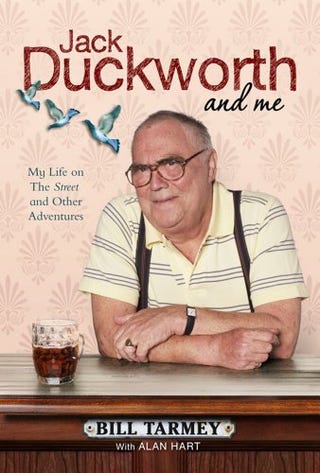It has been a busy few months for Summer Spellman in Coronation Street, but her many storylines are a lesson in what happens when you heap misery on characters in place of depth – when you don't try to get under their skin.
There's a brittleness to Summer – a teenage girl still coming to terms with her father's death, a frightening diagnosis and various other traumas. She feels the need to conform, to be thin and filtered, and the immense pressures of exams, results, and further education, which have caused many young people to stumble.
These are pressures that many modern teenagers will have experienced – the bittersweetness of teenage existence. As extreme as the plotlines may be, reality does cut through them. Times are murkier – and ever more complex technologies are uglier. Soaps must, in turn, engage with more serious real-life issues on a human level.
Summer hasn't been treated as an ordinary teenage girl with weaknesses, frailties and insecurities, but as a cosmetic concern, an empty vessel into which so many issues can be spewed in too little time – diabetes, bulimia, accidental pregnancy, surrogacy, miscarriage.
There has been no nuance or considered exploration – no attempt to get under the skin – of grief, the impact of ill health, mental health or approaching womanhood.
It was natural for Summer to struggle with a new normal, a new set of rules for living with diabetes, and its impact on her life. Coronation Street should have given it time. Let the audience absorb the representation before building on other storylines. It was effective enough in its simplicity — its ability to represent the messy, honest reality for many.
There has also been no cathartic, satisfying relief for Summer, no attempt to understand the finer details of her motivations or internal efforts, and no more profound lessons were learned. As she summarised recently: "This whole mess is my fault," and "I've caused nothing but stress for everyone since I failed that exam."
It has been fraught, but there's been no attempt to tone down the slog of misery with an emotional core.
Soaps have always had this approach to an extent – grief over a death is seldom studied, recovery from illnesses and injury seems to be brisker, and singular events that would cause life-long harm to an individual are disregarded.
But when you're telling an important story, giving voice to an experience, the aftermath and its exploration have the most impact – they are up-close human stories.
Any issues that have impacted Summer – diabetes, bulimia, accidental pregnancy, surrogacy, or miscarriage – could have been more fully developed. In addition, scripts with a closer-up, more detailed approach could have got down to the nitty-gritty, the fundamental point – and allowed viewers of any age to feel a connection.
It's often the low-key moments that feel most poignant and effective in soap — a soap street could be our own, a soap pub our local, a soap character our neighbour.
Summer's experiences don't have the strong emotional pull that Coronation Street needs to sell this narrative and its message about important real-world issues to its audience – inspiring apathy and disinterest and planning fresh misery in place of depth accomplishes nothing.
To an extent, we have witnessed this with other characters, perhaps most notably Abi Webster. Abi arrived on the cobbles broken by years of drug abuse, sabotaged by her experiences and spiralling into destructive behaviour. She seemed to cleave to the scraps of her humanity until finally, she lost her twins, and that loss turned Seb Franklin against her.
Over the years, Abi has weathered several relapses, forged a plan for the ultimate revenge, held her son's killer at gunpoint, plunged through a sinkhole and seen the end of her marriage.
Then, she gave birth to a child needing intensive care after losing her eldest son and faced a prolonged custody battle intended to put a severe strain on her. Even Sally Carman, the actress who plays her, hinted that the character needed a break.
But it was a hate crime, the murder of her eldest son, that should have been given more focus – taking that one human, searing, staring-at-you-right-in-the-face moment and getting under their skin of it.
The scene in the hospital waiting room proves the power of stripped-back, more considered storytelling. Abi waits for news about Seb's condition. She stutters and pulsates with raw emotion. She talks about the ordinary pieces of life that viewers can connect with, making his favourite tea, commenting that she'll "probably do his head in" as he recuperates.
Upon hearing about his death, she crumbles to the floor. She pleads desperately, and in the following weeks, the way grief impacted her formed an essential emotional connection with the audience. This was as the ordinary mother, the one we might know from the street or the frightening but detached media coverage.
But how Abi's story unfurled after those human, close-up scenes felt unnatural and sensationalistic, jarring a little with the real-world reality.
Soaps work when they have that up-close, detailed, stare-at-you-right-in-the-face approach when they explore the depth of an issue and don't just heap misery on characters from a distance.
Coronation Street airs on Mondays, Wednesdays and Fridays at 8pm on ITV1 and streams on ITVX.
Read more Coronation Street spoilers on our dedicated homepage















![The Road to Coronation Street [DVD] The Road to Coronation Street [DVD]](https://hips.hearstapps.com/vader-prod.s3.amazonaws.com/1568634215-51d4CaKIrCL.jpg?crop=1xw:1xh;center,top&resize=320%3A%2A)

![The Stars of Coronation Street - 50 Years, 50 Classic Characters [DVD] The Stars of Coronation Street - 50 Years, 50 Classic Characters [DVD]](https://hips.hearstapps.com/vader-prod.s3.amazonaws.com/1568634418-51we2BNTW1yL.jpg?crop=1xw:1xh;center,top&resize=320%3A%2A)


















